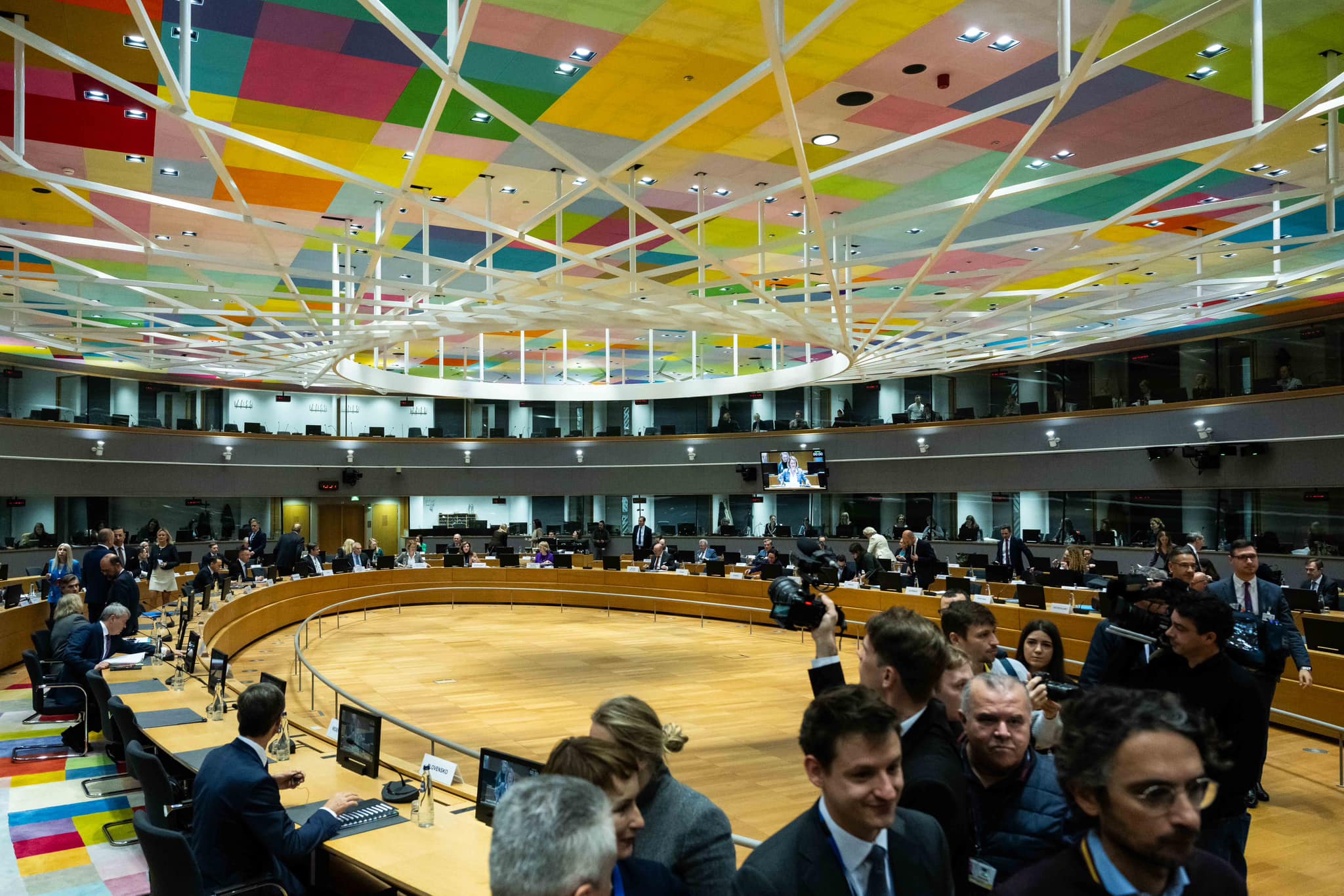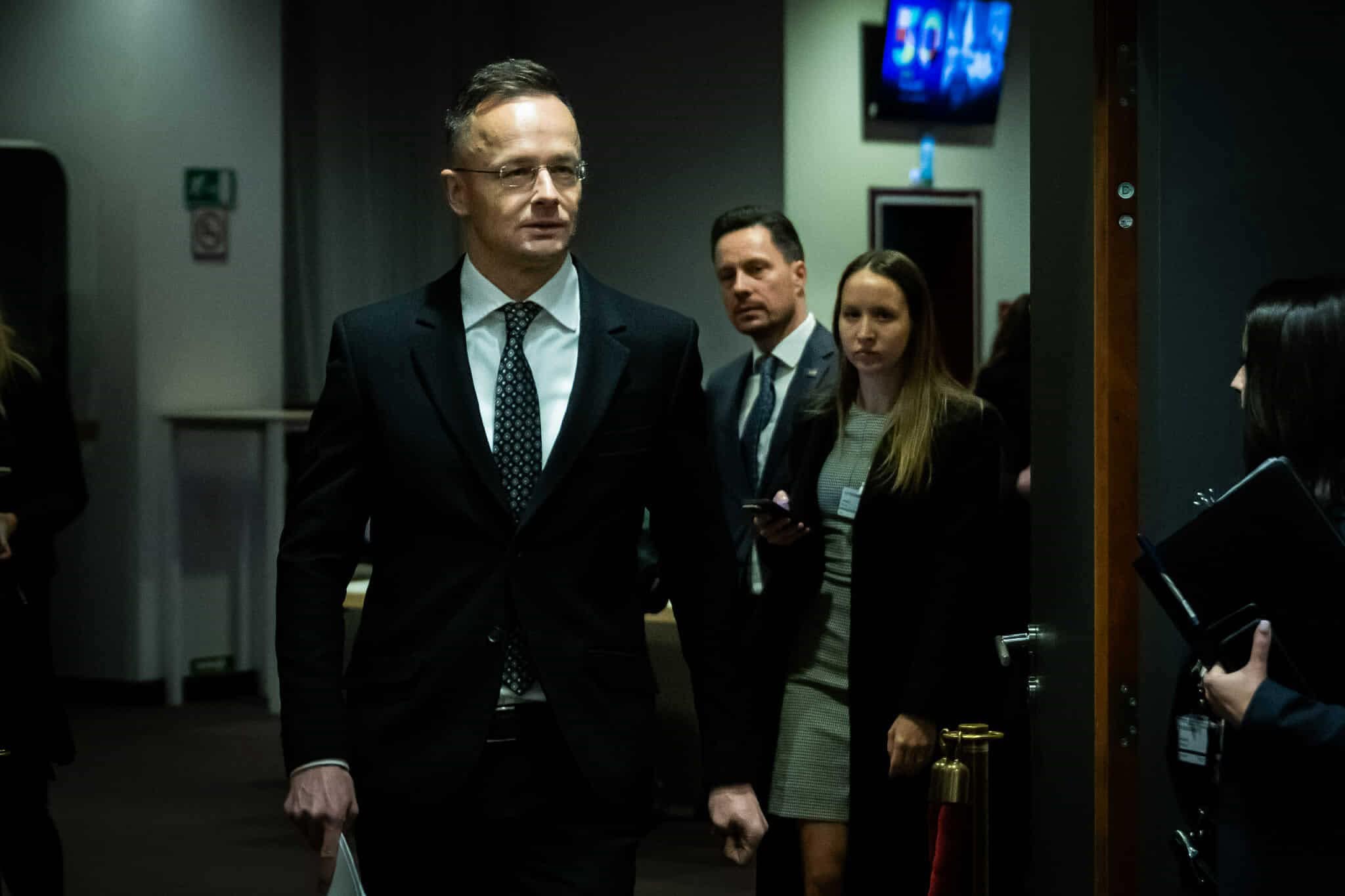
“Hungary has never delivered arms and will not contribute to any arms transfers.”Continue reading

Hungarian Minister of Foreign Affairs and Trade Péter Szijjártó has openly embraced Hungary’s distinct position within the European Union, reaffirming the country’s commitment to a pro-peace approach amid rising geopolitical tensions. Speaking in Brussels on Tuesday after the EU-Albania Intergovernmental Conference, Szijjártó responded to comments from Estonian Foreign Minister Margus Tsahkna, who implied that Hungary was “playing on a different team.”
“The minister is absolutely right,” Péter Szijjártó stated. “We are playing on a different team. He is playing on the pro-war team, and I am playing on the pro-peace team, thus he sees the situation well.”
This exchange followed remarks made by Tsahkna the previous day after an EU foreign affairs council meeting.
Tsahkna expressed frustration over Hungary and Slovakia’s veto of a sanctions proposal against Georgia,
noting, “I have been sitting in this room with the same Hungarian colleague for almost two years now. They have their own positions. They are probably not playing for our team, but for another team.”
The dispute highlights a deepening divide within the European Union over foreign policy strategies, particularly regarding the ongoing conflict in Ukraine and relations with neighboring regions. Hungary’s government has consistently advocated for dialogue and a negotiated resolution to conflicts, positioning itself in opposition to what it perceives as more aggressive stances taken by other Member States.
Szijjártó has been a vocal critic of measures he believes escalate tensions rather than foster peace. “Hungary’s approach is based on principles of peace and diplomacy,” he emphasized. “We believe that sanctions and punitive measures do not contribute to resolving conflicts but instead prolong suffering and instability.”
️ FM Péter Szijjártó responded to Estonian FM Margus @Tsahkna’s remarks in Brussels, stating: “He is completely right. We are indeed playing in a different team—the pro-peace team.”
Minister Szijjártó’s comments came after Tsahkna claimed Hungary seems to be “playing for… pic.twitter.com/MbCQCHJoW2
— Zoltan Kovacs (@zoltanspox) December 17, 2024
This is not the first time Hungary has faced criticism from EU partners for its foreign policy choices. The country’s stance on issues such as energy cooperation with Russia and its hesitancy to support certain sanctions have drawn scrutiny. However, Szijjártó and Prime Minister Viktor Orbán’s government have maintained that Hungary’s actions are guided by national interests and a broader vision for European stability.
The tensions between Hungary and Estonia reflect broader challenges in achieving consensus within the EU on foreign policy. While countries like Estonia prioritize a firm stance against perceived aggressors, Hungary’s pro-peace position underscores a more cautious approach.

Estonian Foreign Minister Margus Tsahkna. Photo: X/Margus Tsahkna
Margus Tsahkna’s comments and the Hungarian politician’s response illustrate the complexity of navigating these differing priorities within the union.
Despite the criticism, Hungary’s leadership remains steadfast in its commitment to promoting peace, even if it means diverging from the majority view.
As the EU continues to grapple with these internal divisions, the question of how to reconcile differing approaches to foreign policy remains pressing.
Via MTI; Featured image via Facebook/Szijjártó Péter